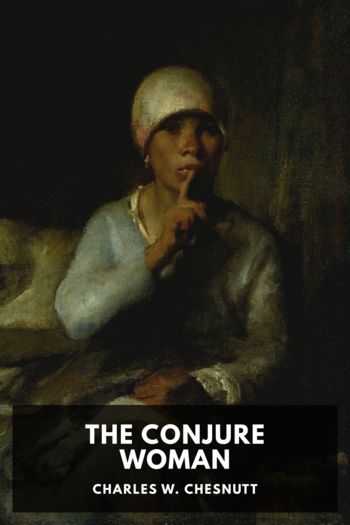The Lives of the Caesars, Suetonius [best book club books for discussion .TXT] 📗

- Author: Suetonius
Book online «The Lives of the Caesars, Suetonius [best book club books for discussion .TXT] 📗». Author Suetonius
In winter he protected himself with four tunics and a heavy toga, besides an undershirt, a woollen chest-protector and wraps for his thighs and shins, while in summer he slept with the doors of his bedroom open, oftentimes in the open court near a fountain, besides having someone to fan him.194 Yet he could not endure the sun even in winter, and never walked in the open air without wearing a broad-brimmed hat, even at home. He travelled in a litter, usually at night, and by such slow and easy stages that he took two days to go to Praeneste or Tibur; and if he could reach his destination by sea, he preferred to sail. Yet in spite of all he made good his weakness by great care, especially by moderation in bathing; for as a rule he was anointed or took sweat by a fire, after which he was doused with water either lukewarm or tepid from long exposure to the sun. When however he had to use hot salt water and sulphur baths195 for rheumatism, he contented himself with sitting on a wooden bath-seat, which he called by the Spanish name dureta, and plunging his hands and feet in the water one after the other.
Immediately after the civil war he gave up exercise with horses and arms in the Campus Martius, at first turning to pass-ball196 and balloon-ball,197 but soon confining himself to riding or taking a walk, ending the latter by running and leaping, wrapped in a mantle or a blanket. To divert his mind he sometimes angled and sometimes played at dice, marbles and nuts198 with little boys, searching everywhere for such as were attractive for their pretty faces or their prattle, especially Syrians or Moors; for he abhorred dwarfs, cripples, and everything of that sort, as freaks of nature and of ill omen.
From early youth he devoted himself eagerly and with utmost diligence to oratory and liberal studies. During the war at Mutina, amid such a press of affairs, he is said to have read, written and declaimed every day. In fact he never afterwards spoke in the senate, or to the people or the soldiers, except in a studied and written address, although he did not lack the gift of speaking offhand without preparation. Moreover, to avoid the danger of forgetting what he was to say, or wasting time in committing it to memory, he adopted the practice of reading everything from a manuscript. Even his conversations with individuals and the more important of those with his own wife Livia, he always wrote out and read from a notebook, for fear of saying too much or too little if he spoke offhand. He had an agreeable and rather characteristic enunciation, and he practised constantly with a teacher of elocution; but sometimes because of weakness of the throat199 he addressed the people through a herald.
He wrote numerous works of various kinds in prose, some of which he read to a group of his intimate friends, as others did in a lecture-room; for example, his Reply to Brutus on Cato.200 At the reading of these volumes he had all but come to the end, when he grew tired and handed them to Tiberius to finish, for he was well on in years. He also wrote Exhortations to Philosophy and some volumes of an Autobiography, giving an account of his life in thirteen books up to the time of the Cantabrian war, but no farther. His essays in poetry were but slight. One book has come down to us written in hexameter verse, of which the subject and the title is Sicily. There is another, equally brief, of Epigrams, which he composed for the most part at the time of the bath. Though he began a tragedy with much enthusiasm, he destroyed it because his style did not satisfy him, and when some of his friends asked him what in the world had become of Ajax, he answered that “his Ajax had fallen on his sponge.”
He cultivated a style of speaking that was chaste and elegant, avoiding the vanity of attempts at epigram and an artificial order, and as he himself expresses it, “the noisomeness of farfetched words,” making it his chief aim to express his thought as clearly as possible. With this end in view, to avoid confusing and checking his reader or hearer at any point, he did not hesitate to use prepositions with names of cities, nor to repeat conjunctions several times, the omission of which causes some obscurity, though it adds grace. He looked on innovators and archaizers with equal contempt, as faulty in opposite directions, and he sometimes had a fling at them, in particular his friend Maecenas, whose “unguent-dripping curls,” as he calls them, he loses no opportunity of belabouring and pokes fun at them by parody. He did not spare even Tiberius, who sometimes hunted up obsolete and pedantic expressions; and as for Mark Antony, he calls him a madman, for writing rather to be admired than to be understood. Then going on to ridicule his perverse and inconsistent taste in choosing an oratorical style, he adds the following: “Can you doubt whether you ought to imitate Annius Cimber or Veranius Flaccus,201 that you use the words which Sallustius Crispus gleaned from Cato’s Origines?202 Or would you rather introduce into our tongue the verbose and unmeaning fluency of the Asiatic orators?”203 And in a letter praising the talent of his granddaughter Agrippina he writes: “But you must take great care not to write and talk affectedly.”
That





Comments (0)